Feminists and educationists remember the late Gandhian Ela Ramesh Bhatt whose phenomenal work at SEWA inspired them to take up the cause of women’s rights and empowerment
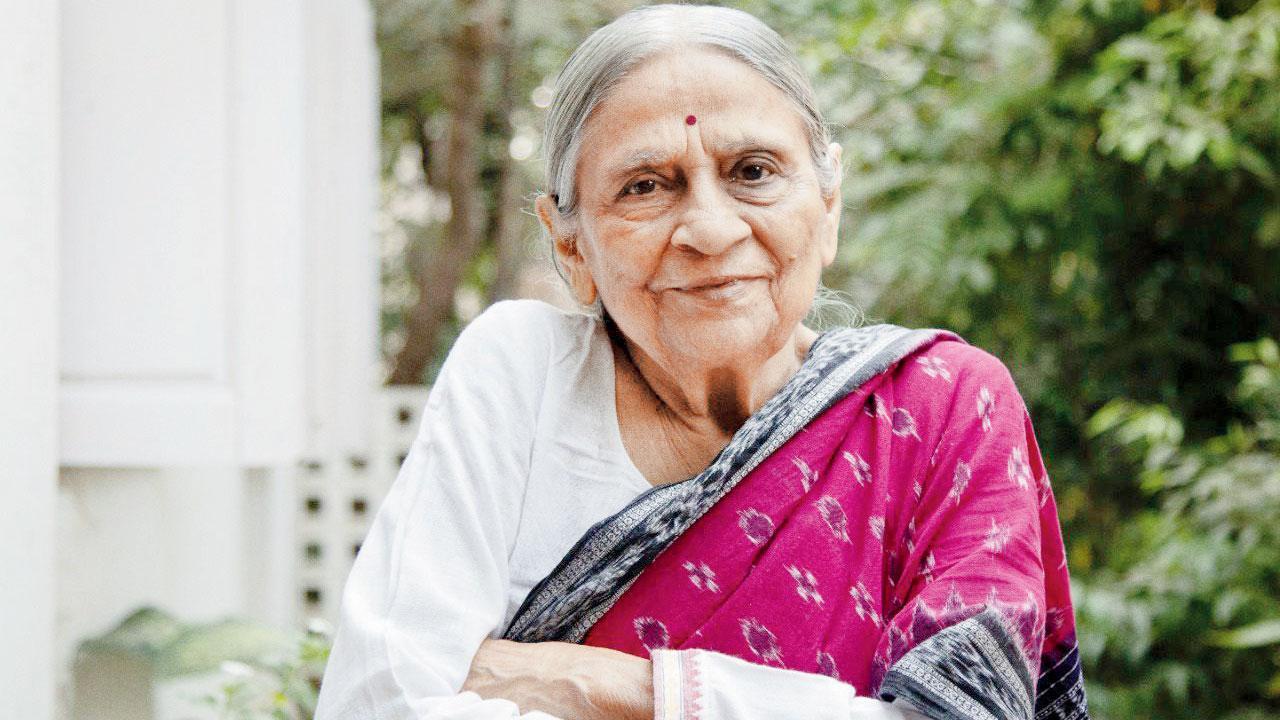
Late Ela Ramesh Bhatt, fondly known as Elaben, passed away on November 2, at the age of 89. She was a Gandhian, social activist and the founder of Self Employed Women’s Association (SEWA). PIC/RAMESHWAR BHATT
It was in the year 1972 that Dr Vibhuti Patel, 68, first met Ela Ramesh Bhatt. Then, a student at Maharaja Sayajirao University in Vadodara, Patel remembers being instantly charmed by her. “She was a young lawyer at the time and had just founded SEWA [Self Employed Women’s Association]. She was also working with the Textile Labour Association (TLA), fighting for women workers in the industry. I was part of an organisation in Baroda called Study and Struggle Alliance, which was also working on issues of students, youth and industrial workers’ rights, and we met during those times.”
ADVERTISEMENT
The two met again, when Bhatt was called in as a keynote speaker at the first conference of the Indian Association’s Women’s Studies held at SNDT University, Mumbai in 1981. In1981, Patel was Researcher at Research Unit for Women’s Studies at SNDT Women’s University and in the core committee of the Women’s Studies Conference.
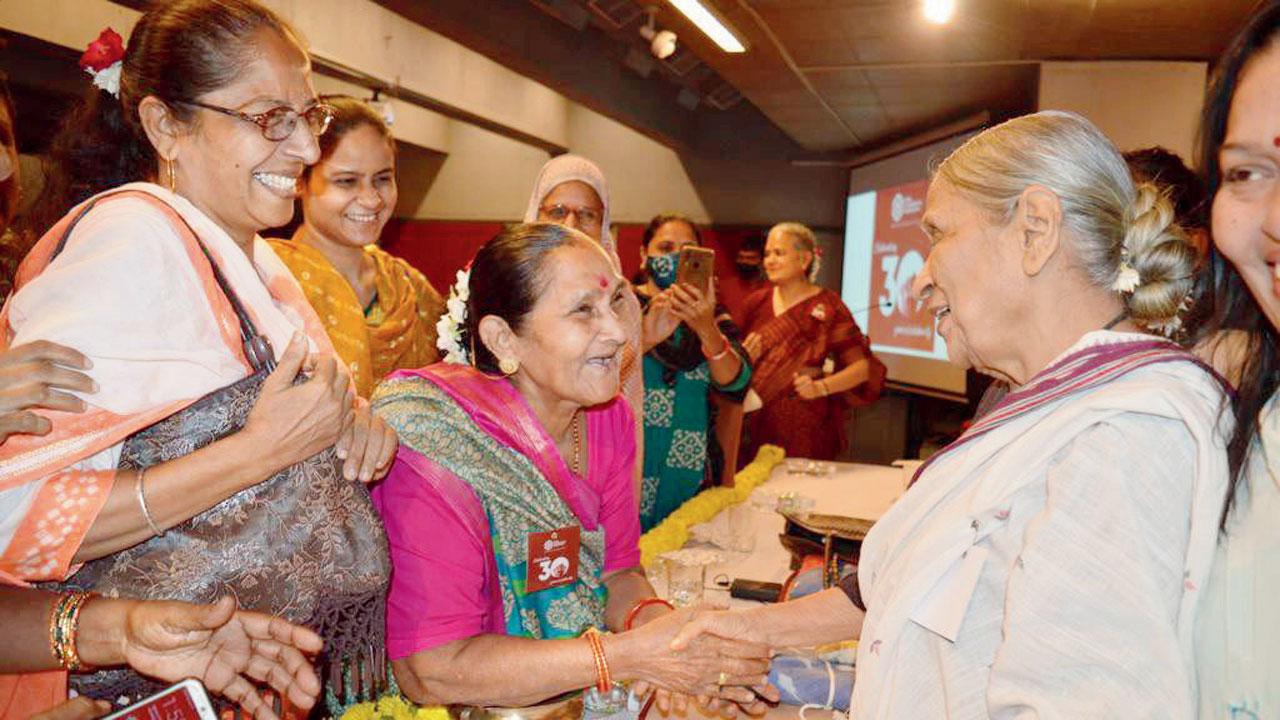
She enjoyed engaging with the cause of women’s upliftment. She’d sit among them and talk, listen to their stories and sing songs with them
“Till until 1985, there used to be many seminars, workshops and strategy building workshops, and SEWA was always present in all of them,” shares Patel, who retired from TISS in June 2020. She calls Bhatt an inspiration for her work in uplifting women through economic opportunities. “She also had a great sense of humour.”
Bhatt, fondly known as Elaben, passed away on November 2. She was 89. A lawyer by profession, she was also a Gandhian, activist and social worker, and the force behind SEWA, which was launched in 1972. She lived and worked out of Ahmedabad, Gujarat, most of her life, but her values and principles have inspired feminists all over.
“Elaben was not a leader. She made a leader out of every woman,” says Dr Khevana Desai, associate professor and head of sociology department at Mithibai College. Desai recalls meeting her only once after a seminar, when she was a student of sociology, but says, she inspired by her. “She was very soft spoken,” she says, adding, “Generally, there is a stereotypical image of activist women being forthright. You may not see that in Elaben’s speech, but you can see that in her work. It [her work] would ignite people’s lives. She had a strong voice, but never screamed. Just like her personality, her work was also very quiet, but fierce,” she says.
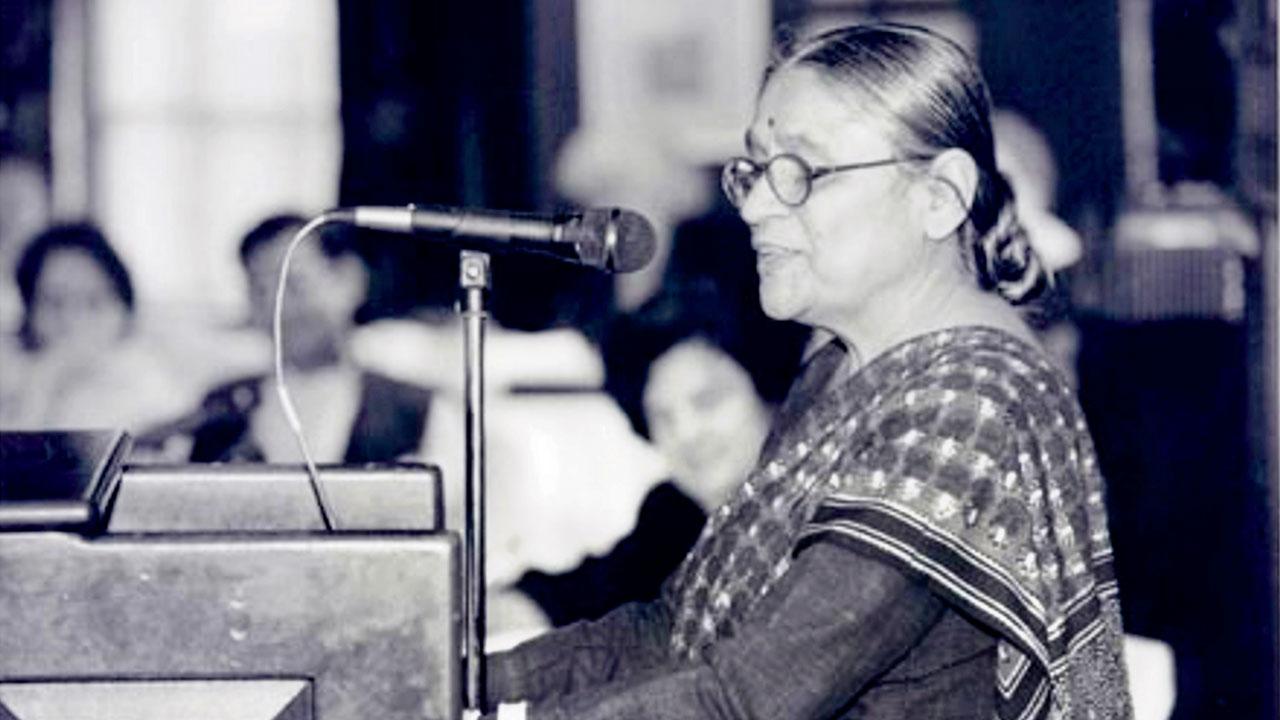
Ela Bhatt speaking at Harvard University in 2000
Bhatt was open to new ideas and would use any medium available to celebrate the work done by the women of SEWA. That’s how Poulomi Das, a consultant for museums, who recently moved to Ahmedabad from Mumbai first met her. “It was in 2001,” says Das, when she first met Bhatt, at NIFT, Gandhinagar during a fashion show organised by the students who collaborated with SEWA. Das was a faculty member at the time. “Suddenly these ladies from SEWA got on stage and walked on the ramp. Elaben also did the catwalk,” she recalls. “I didn’t speak to her, because I was in awe of her.”
Former Mumbaikar Mirai Chatterjee, former general secretary and current director at SEWA Social Security, heard about Bhatt when she was a student at Harvard University. She finally got an opportunity to meet her in Mumbai in the late 1970s at a seminar on slum and pavement dwellers. “When I met her face to face, I was so inspired that I later went to Ahmedabad to meet her. She said that they needed young women like me who were ready to work and use their education to help society.” Chatterjee went on to get a degree in public health from Johns Hopkins university School of Public Health, and joined SEWA in October 1984.
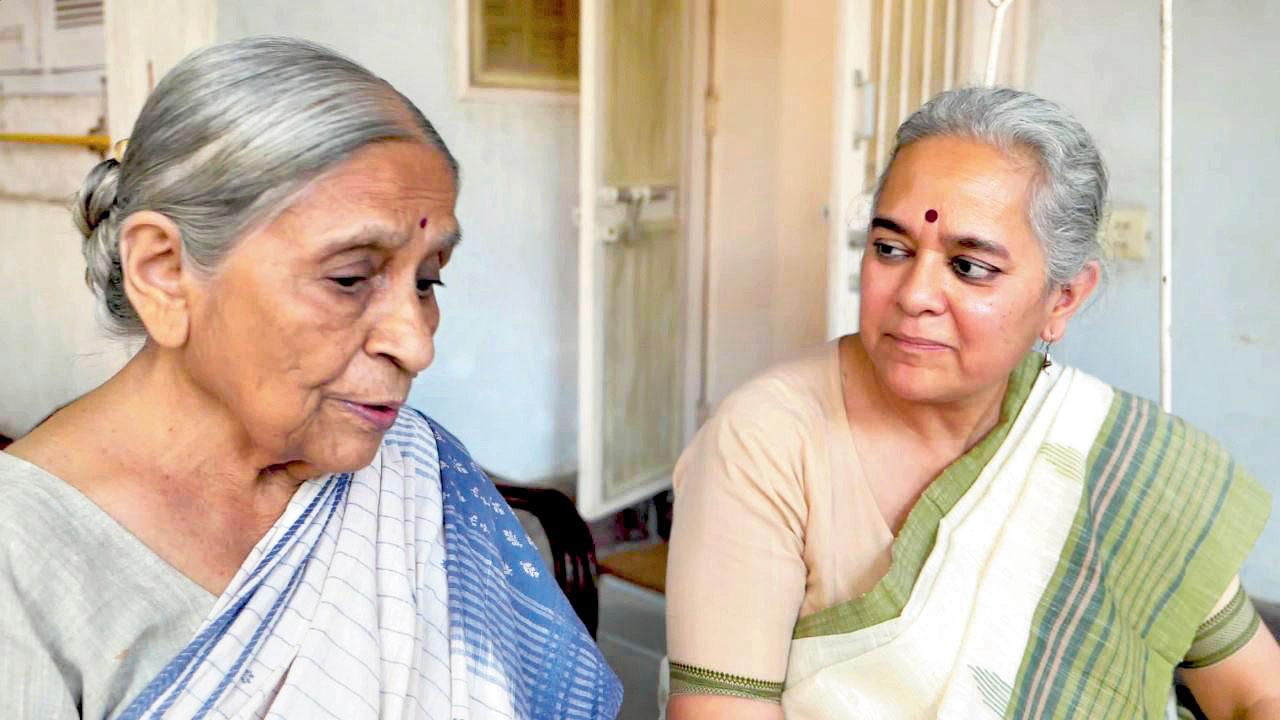
Bhatt and Mirai Chatterjee, current director at SEWA Social Security, loved discussing books and ran a two-member book club
According to Patel, Bhatt was an expert cook and loved hosting people. At the World Conference on Women (1985) in Nairobi, “Elaben came with a big delegation of women from Gujarat. She made separate arrangements for Gujarati food... that was a very beautiful experience”. She also adds that Bhatt always attended most conferences with women from SEWA, so that they got enough exposure.
Sujata Gothoskar, who has been part of the labour and the feminist movement since the early ‘70s, got the opportunity to work with Bhatt in 1988-89 on the Shram Shakti report, which she chaired when she was a Rajya Sabha member. “She was a simple woman who was very accessible, methodical and had a national and international perspective,” she says.
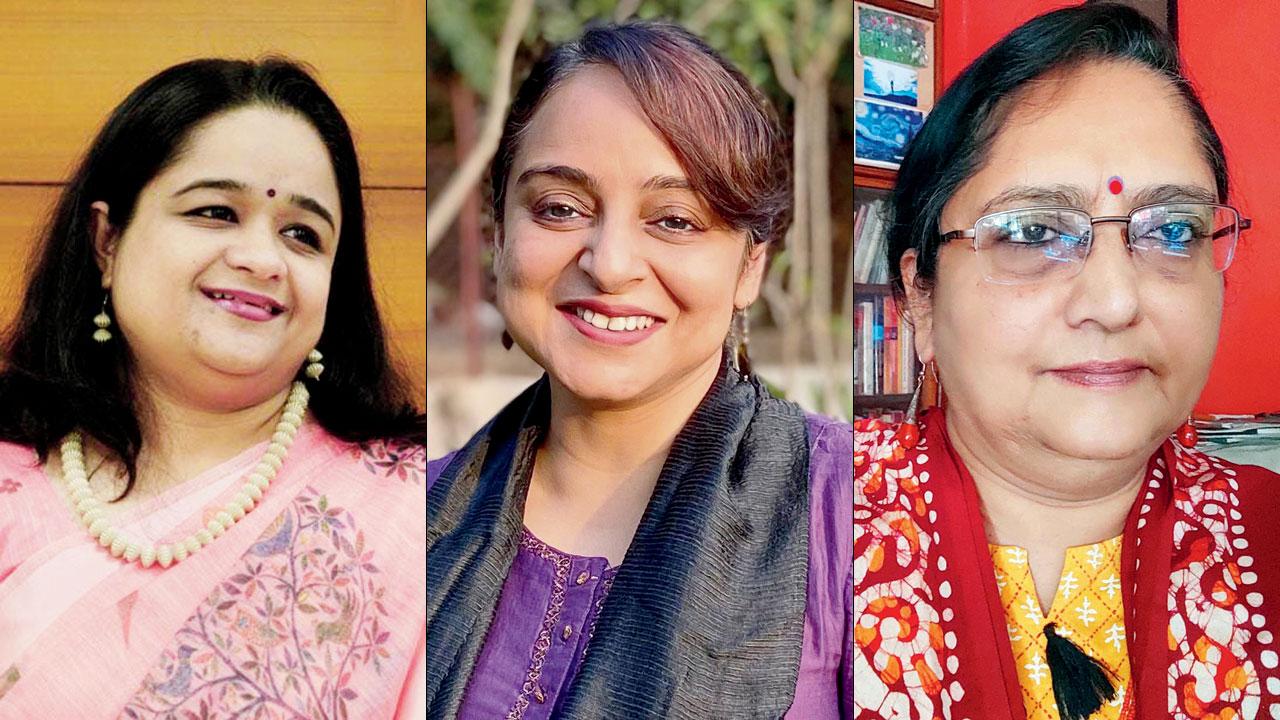
Dr Khevana Desai, Poulomi Das and Dr Vibhuti Patel
Not known to many, Bhatt also took time out to pursue her hobbies. “She was a shaukeen of classical Hindustani music and had a beautiful voice, and started taking daily lessons after she stepped down from the post of general secretary at SEWA,” shares Chatterjee. Her favourite song, recalls Patel, was Hum honge kaamyab. “Her translation in rustic Gujarati of the song Ame paar kareeshoon became an anthem for the SEWA women.” Chatterjee and Bhatt also loved discussing books. “We ran a book club, with just the two of us,” she laughs. The last books they exchanged were Peggy Mohan’s Wanderers, Kings, Merchants: The Story of India Through its Language and Obama’s memoir A Promised Land. “Elaben enjoyed engaging with people. She enjoyed talking to a wide range of people and could hold her own among industrialists, political leaders, academics, but her first love was always the self-employed women. She loved to sit among them and talk, listen to their stories and sing songs with them.”
 Subscribe today by clicking the link and stay updated with the latest news!" Click here!
Subscribe today by clicking the link and stay updated with the latest news!" Click here!







